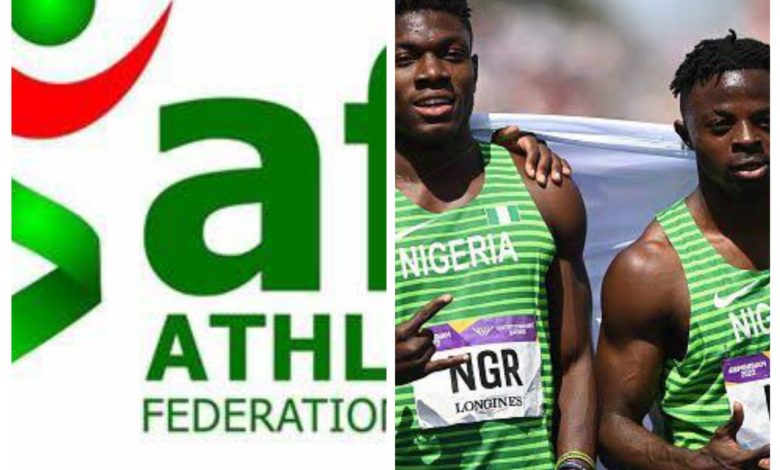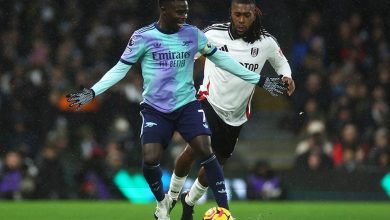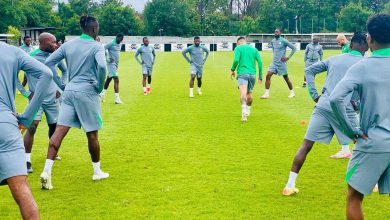Squandered Speed: Nigeria’s Relay Stars Grounded by AFN’s Dysfunction
Ngerem, Porbeni lament missed relay opportunity as Tokyo 2025 looms

According to Nigeria’s Guardian newspaper, former President of the Athletics Federation of Nigeria (AFN), Dan Ngerem, and former Head Coach Seigha Porbeni have expressed deep disappointment over Nigeria’s failure to qualify a single relay team for the fast-approaching 2025 World Athletics Championships in Tokyo, Japan.
With the qualification window officially closed, Nigeria will, for the first time since the inaugural edition in Helsinki in 1983, be absent from all five relay events at the global showpiece.
The development has sparked widespread frustration among stakeholders, especially given the caliber of athletes Nigeria currently boasts in both the sprints and quarter-mile events.
For Ngerem and Porbeni, the failure is not just a missed opportunity, it’s a squandered golden generation.
‘There are usually multiple opportunities to qualify for relays, but if you are not proactive and keep waiting for government money, you may function well below expectations,’ Ngerem told The Guardian.
Porbeni, according to The Guardian, was even more scathing in his assessment.
‘It is unbelievable that the AFN would squander a generation of some of the best sprinters Nigeria has ever had in decades in a twinkle of an eye due to arrogance, poor managerial knowledge, and a complete lack of foresight,’ he said.
Indeed, Nigeria’s current roster includes elite talents such as Samuel Ogazi, a Paris Olympics finalist with a season’s best of 44.43; Ezekiel Nathaniel, who holds the national record in the 400m hurdles (47.31) and has run 44.74 indoors and 44.75 outdoors this season; Chidi Okezie, who has clocked 44.98; and Edidiong Udo, with a 45.19 mark.
Ifeanyi Ojeli has also posted 45.74 this year and could be a good substitute.
Based on these performances, Nigeria’s men’s 4x400m team could realistically run 2:57.6 in Tokyo which is well within medal contention.
For context, the USA won gold in Budapest 2023 with 2:57.31, while Great Britain took bronze in 2:58.71.
With two runners capable of splitting 43.9 and two others at 44.9 and 45.1, Nigeria had the firepower to challenge the world’s best.
The men’s 4x100m team also showed promise.
Though ranked 17th globally in the Road to Tokyo performance list and narrowly missing the cutoff, the quartet has the potential to run significantly faster than their season’s best with clean baton exchanges and flying starts.
With sprinters like Kayinsola Ajayi (9.92 SB, Season’s Best) Favour Ashe (10.08SB), Israel Okon (10.03SB), Adekalu Fakorede (10.06SB), and Udodi Onwuzurike (10.09SB) in the mix, a sub-38 second performance was within reach.
Porbeni offered a roadmap for future success: ‘The AFN should get its best sprinters in the USA, take a few at home to join them, then start with the Penn Relays, Florida Relays, and prepare for the World Relays. Nigeria not attending this year’s World Relays was a strong red light.’
The consensus is clear: Nigeria’s absence from Tokyo’s relay events is not due to a lack of talent, but a failure of leadership, planning, and strategic execution.




